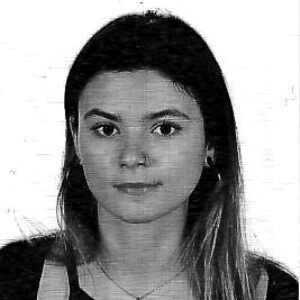Vygotsky's Inner Speech Theory


Written and verified by the psychologist Paula Villasante
Philosophers have always had an interest in inner language. In fact, one of the most renowned authors in Western psychology studied this subject. This was Lev Vygotsky. As a matter of fact, his thinking completely changed the conception of the human psyche. In order to do this, he focused on language. Furthermore, he emphasized the development of emotions as well as the systemic understanding of the psyche. Vygotsky’s inner speech concept was one of his most famous theories.
Vygotsky was a highly intellectual author. In addition to submitting his proposals, he wanted to discuss their implications. In fact, Vygotsky had many debates with Jean Piaget. Their discussion concerning the topic of egocentric speech is the most famous.
From external to inner speech
Vygotsky states that inner speech is based on the existence of three different ways of speaking. The first is external speech or social speech. Then, there’s egocentric speech. Finally, there’s inner speech.
Feigenbaum refers to Vygotsky’s theory as follows:
“Vygotsky viewed private speech as the link between early socially communicative speech and mature inner speech. Social speech is vocalized speech addressed and intellectually adapted to others, and inner speech is subvocalized speech directed and adapted to oneself, whereas private speech is vocalized speech addressed and adapted to oneself. Thus, private speech is neither social communication nor silent thought, but vocalized thought.”
It seems that, for Vygotsky, inner speech is the experience of silently speaking to yourself. It’s a language without sound, a subvocalized kind of speech. Or, as he claimed in his final work, a vocalized thought.

Vygotsky’s inner speech
Vygotsky defines inner speech as having a special formulation in terms of its psychological nature. He claims it’s a unique form of verbal activity with its own characteristics. However, it maintains a complex relationship with other forms of verbal activity.
Vygotsky claims there’s a difference between speaking to oneself and speaking to others. You use internal speech to talk to yourself. However, you use external speech to talk to others. In addition, the radical and fundamental differences between these two types of speech mean that they’re also structurally different.
However, it’s not just a matter of vocalization. Indeed, for Vygotsky, the presence or absence of vocalization is irrelevant to the special psychological nature of inner speech.
Inner speech precedes external speech. Furthermore, inner speech is the complete opposite of external speech. Vygotsky states that external speech transforms thoughts into words. On the other hand, internal speech comes from the outside to the inside. In effect, internal speech is a kind of evaporation of language into thought.

The expressive dimension
The expressive dimension of language manifests itself in your inner speech. However, with inner speech, you’re both the sender and receiver of the message. Thus, inner speech takes the form of a monologue.
Vygotsky suggests that inner speech is more loaded with meaning. In other words, it removes all aspects of consciousness that are associated with the idea being expressed. Furthermore, inner speech doesn’t have the characteristics of dialogue. In fact, it’s more of a holistic concept. As we mentioned above, in inner speech, you’re both the sender and receiver of the message. This means that you tend to eliminate the subject in a sentence. Just the predicates are left behind. This is because you already know what the subject is. Consequently, it becomes unnecessary.
Vygotsky believes that internal speech is monological. Furthermore, that your expressive dimension of inner speech is a manifestation of your deepest states of consciousness. Vygotsky claims that inner speech occurs due to the inter-functional relationship between thought and language. Most of your thoughts take shape thanks to this particular relationship. In fact, this relationship is the key element of inner speech, according to Vygotsky.
Philosophers have always had an interest in inner language. In fact, one of the most renowned authors in Western psychology studied this subject. This was Lev Vygotsky. As a matter of fact, his thinking completely changed the conception of the human psyche. In order to do this, he focused on language. Furthermore, he emphasized the development of emotions as well as the systemic understanding of the psyche. Vygotsky’s inner speech concept was one of his most famous theories.
Vygotsky was a highly intellectual author. In addition to submitting his proposals, he wanted to discuss their implications. In fact, Vygotsky had many debates with Jean Piaget. Their discussion concerning the topic of egocentric speech is the most famous.
From external to inner speech
Vygotsky states that inner speech is based on the existence of three different ways of speaking. The first is external speech or social speech. Then, there’s egocentric speech. Finally, there’s inner speech.
Feigenbaum refers to Vygotsky’s theory as follows:
“Vygotsky viewed private speech as the link between early socially communicative speech and mature inner speech. Social speech is vocalized speech addressed and intellectually adapted to others, and inner speech is subvocalized speech directed and adapted to oneself, whereas private speech is vocalized speech addressed and adapted to oneself. Thus, private speech is neither social communication nor silent thought, but vocalized thought.”
It seems that, for Vygotsky, inner speech is the experience of silently speaking to yourself. It’s a language without sound, a subvocalized kind of speech. Or, as he claimed in his final work, a vocalized thought.

Vygotsky’s inner speech
Vygotsky defines inner speech as having a special formulation in terms of its psychological nature. He claims it’s a unique form of verbal activity with its own characteristics. However, it maintains a complex relationship with other forms of verbal activity.
Vygotsky claims there’s a difference between speaking to oneself and speaking to others. You use internal speech to talk to yourself. However, you use external speech to talk to others. In addition, the radical and fundamental differences between these two types of speech mean that they’re also structurally different.
However, it’s not just a matter of vocalization. Indeed, for Vygotsky, the presence or absence of vocalization is irrelevant to the special psychological nature of inner speech.
Inner speech precedes external speech. Furthermore, inner speech is the complete opposite of external speech. Vygotsky states that external speech transforms thoughts into words. On the other hand, internal speech comes from the outside to the inside. In effect, internal speech is a kind of evaporation of language into thought.

The expressive dimension
The expressive dimension of language manifests itself in your inner speech. However, with inner speech, you’re both the sender and receiver of the message. Thus, inner speech takes the form of a monologue.
Vygotsky suggests that inner speech is more loaded with meaning. In other words, it removes all aspects of consciousness that are associated with the idea being expressed. Furthermore, inner speech doesn’t have the characteristics of dialogue. In fact, it’s more of a holistic concept. As we mentioned above, in inner speech, you’re both the sender and receiver of the message. This means that you tend to eliminate the subject in a sentence. Just the predicates are left behind. This is because you already know what the subject is. Consequently, it becomes unnecessary.
Vygotsky believes that internal speech is monological. Furthermore, that your expressive dimension of inner speech is a manifestation of your deepest states of consciousness. Vygotsky claims that inner speech occurs due to the inter-functional relationship between thought and language. Most of your thoughts take shape thanks to this particular relationship. In fact, this relationship is the key element of inner speech, according to Vygotsky.
All cited sources were thoroughly reviewed by our team to ensure their quality, reliability, currency, and validity. The bibliography of this article was considered reliable and of academic or scientific accuracy.
-
Feigenbaum, P. (1992). Development of the syntactic and discourse structures of private speech. Private speech: From social interaction to self-regulation, 181-198.
-
Vygotski, L. S., Kozulin, A., & Abadía, P. T. (1995). Pensamiento y lenguaje (pp. 97-115). Barcelona: Paidós.
-
Fossa, P. (2017). La dimensión expresiva del habla interna. Psicologia USP, 28(3), 318-326.
This text is provided for informational purposes only and does not replace consultation with a professional. If in doubt, consult your specialist.







